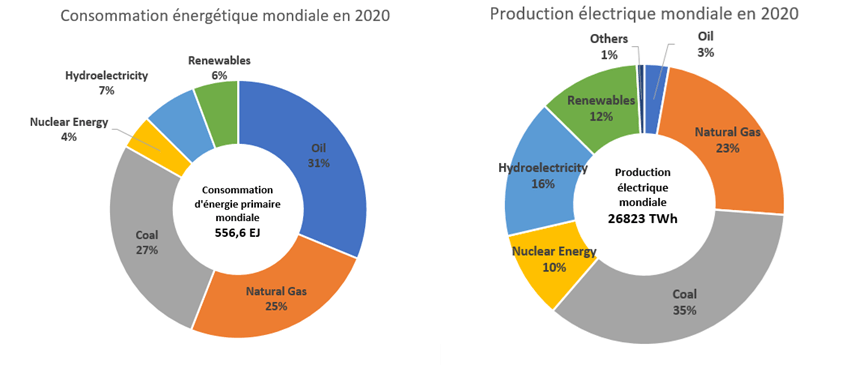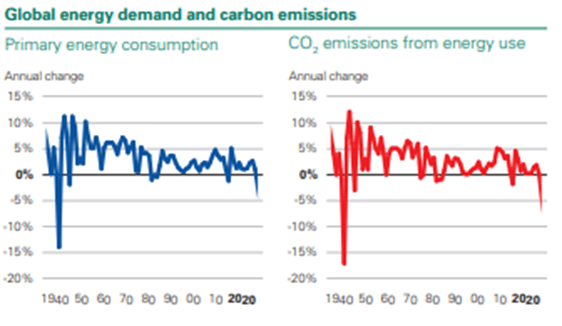The BP company has just published its statistical review of world energy regarding 2020. The first thing that strikes when reading this report is the impact of the Covid crisis on global energy consumption.
In 2020, global primary energy consumption fell by 4.5%, the largest drop since World War II.
This significant drop is mainly due to a collapse in demand for oil which contracted by 9.3% in 2020. This, for its part, originates in a pandemic context marked by a significant drop in economic activity and reduced travel as a result of the implementation of lockdown periods.
In comparison, gas has been shown to be more resilient as gas demand was only reduced by 2.3% in 2020. BP has seen demand reduction in most regions except China where demand for gas has grew by 7% over the same period.

Among other highlights, the BP report also shows the significant shift towards renewable in the global electricity mix. Energy production from renewable sources has, in fact, reached new records: 358 TWh of energy has been produced from renewable sources, of which 173 TWh of wind production and 148 TWh of solar production.
Despite this significant increase, these good results still need to be put into perspective, as coal remains the predominant source in world electricity production with a share of 35%.
In terms of greenhouse gases, emissions fell of 6.3% in 2020. This is also their lowest level since 1945. The report indicates that this significant drop corresponds to the global effort that is expected to be achieved on average over the next 30 years in order to achieve the objectives of the Paris Agreement.

